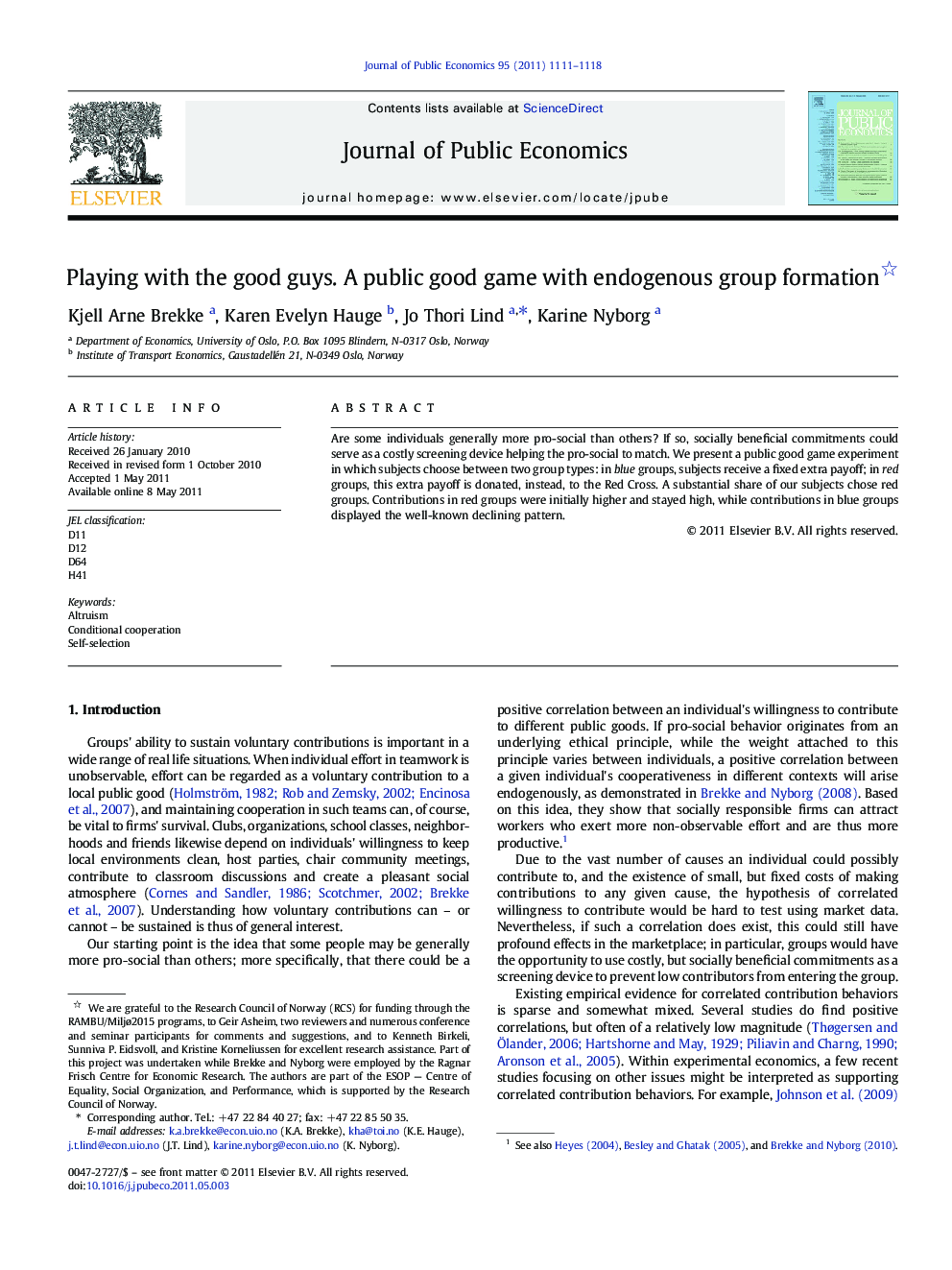| Article ID | Journal | Published Year | Pages | File Type |
|---|---|---|---|---|
| 969297 | Journal of Public Economics | 2011 | 8 Pages |
Are some individuals generally more pro-social than others? If so, socially beneficial commitments could serve as a costly screening device helping the pro-social to match. We present a public good game experiment in which subjects choose between two group types: in blue groups, subjects receive a fixed extra payoff; in red groups, this extra payoff is donated, instead, to the Red Cross. A substantial share of our subjects chose red groups. Contributions in red groups were initially higher and stayed high, while contributions in blue groups displayed the well-known declining pattern.
Research Highlights► In a public good game, many subjects chose membership in groups with a fixed precommitment to charity. ► Contributions in such groups were initially higher and stayed high. ► Contributions in other groups displayed the usual declining pattern.
